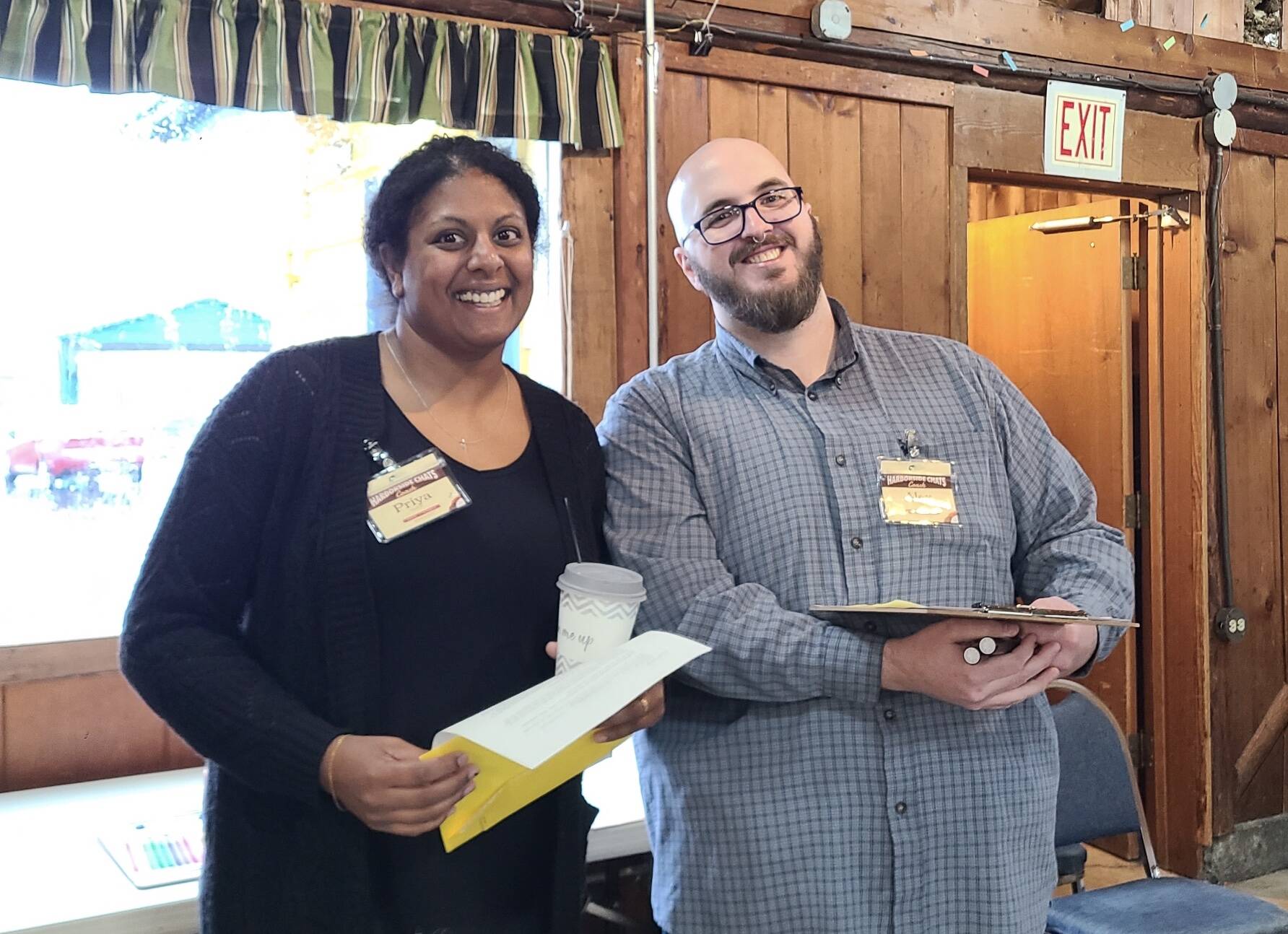Signs of community division and polarization were increasingly apparent to Astrid Aveledo since she took over seven years ago as executive director of the Dispute Resolution Center of Grays Harbor and Pacific Counties. The center provides services and programs to help settle disagreements in a variety of circumstances, both in personal and family life and in small claims court.
Research and polls show fewer and fewer Americans trust the government to do what is right, while disagreements about policy have grown into personal discontent for those on the other side of the aisle.
Aveledo also saw the divides deepening outside of politics, noticing a “clear escalation” in biased attitudes affecting “every aspect of our community’s life.”
That’s why in 2022 the local Dispute Resolution Center greenlit the “Dialogue Project,” an effort to close divisions and combat bias through conversation. The project aims to create a space where people can express dissenting views without feeling under attack and realize the places where values overlap might not be so scarce as they previously thought.
“I would really hope that our differences of opinion and perspective would not be something that we would demonize other people for — maybe even gain an appreciation for,” Aveledo said in an interview. “If we can’t get an appreciation, if we can just not vilify somebody because they think differently than us. That would be a huge gain.”
The discussions have already begun across the county with the Dialogue Project’s “Harborside chats,” facilitated discussions on community problems driven by participants and guided by trained mediators.
After hosting events in Cosmopolis, Westport, Ocean Shores and online, the next Harborside chat will take place in Aberdeen on Saturday, April 13 at the Grays Harbor County Public Health’s Pearsall Building at 2109 Sumner Ave.
The chats are capped at 30 participants and require pre-registration through the Dispute Resolution Center. They are open to all Grays Harbor County residents.
Aveledo said the center’s first four events have seen attendees from a wide variety of community roles and social groups. Political opponents have sat across the table from one another, while others who had never been to a public meeting got their foot in the door.
Each chat begins with a one-on-one conversation between attendees about the “golden rule” — treat others as you would like to be treated — and then moves into group discussion, followed by a poll about which issues are the most important in the community.
That format is based on methods used by Braver Angels, a national cross-partisan nonprofit addressing political animosity and divisions.
The center has published reports about each of the first four conversations. In Cosmopolis, housing, health care access and restoring government integrity rose to the top; healthcare, housing and community spaces topped lists in Westport in Ocean Shores, while the latter city also discussed the need for more city government oversight on use of pesticides and fertilizer.
Jessica Molina, who serves as board president for the Dispute Resolution Center and works as a community health specialist for Grays Harbor County Public Health, said it’s important that people of influence attend or tune in to the chats.
“This is essentially the people telling our leaders what we think is a priority or should be a priority in our community,” Molina said.
Washington has 21 Dispute Resolution Centers across the state. Molina said the Dialogue Project is an “innovative” idea among DRCs statewide.
It’s funded by the Inatai Foundation and Satterberg Foundation, both of Seattle, as well as the Grays Harbor Community Foundation and other local donors.
“Everybody needs to come to at least one,” said Priya Lindeen, a trained dialogue coach and former participant at the chats. “You just hear so many different things — and you hear the same things from different people.”
Trainings with the Dispute Resolution Center gave Lindeen the ability to ensure ideas and stories are shared freely and the skills to simmer the room if dialogue gets too heated — although that hasn’t happened at any of the chats.
Lindeen connected with the Dialogue Project through her work with the county health department, where she coordinates the My Town Coalition, which focuses on substance abuse prevention in youth.
She said the observational data gleaned from the chats aligns with some of the gaps local public health officials are already working on.
But the words shared at Harborside chats amount to more than statistics, Molina said. Participants are prompted to share personal stories of how issues in the community might have affected them.
“The facilitation and providing the space really brings out this intimate storytelling conversation,” Molina said. “We have hard data with hard numbers, but this is in addition to that and kind of tells that story of our community.”
Sarah Little, another dialogue coach, said the conversations are “a lot deeper than filling out a survey.” Little said sharing stories “attaches this real thing to a person, and then you can’t say ‘no you’re wrong’ because it’s your story.”
“You can’t deny someone their story,” she added.
Little said the skills learned through mediation training and during the chats have aided work facilitating group discussions at libraries.
Aveledo hopes participants will also take lessons from the chats into their everyday interactions, whether that’s in person or on social media. And as the Dialogue Project wraps up Harborside Chats it will move into the third and final phase later this year — to address the most prevalent community issues on a broader platform.
Aveledo said that will likely take the form of a town hall or forum that encourages further discussion and leans toward solutions.
“We’re a small community with not a lot of resources,” Aveledo said. “It is so important for us to be able to come together and get creative in how we bring those resources together.”
Contact reporter Clayton Franke at 406-552-3917 or clayton.franke@thedailyworld.com.



